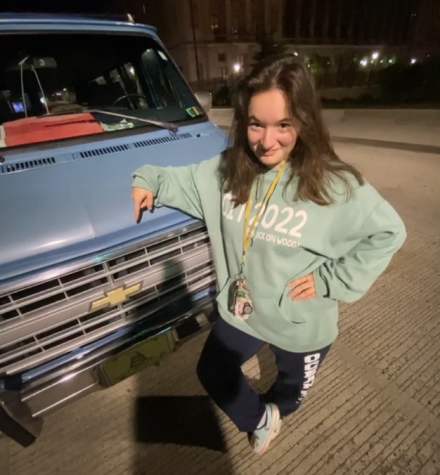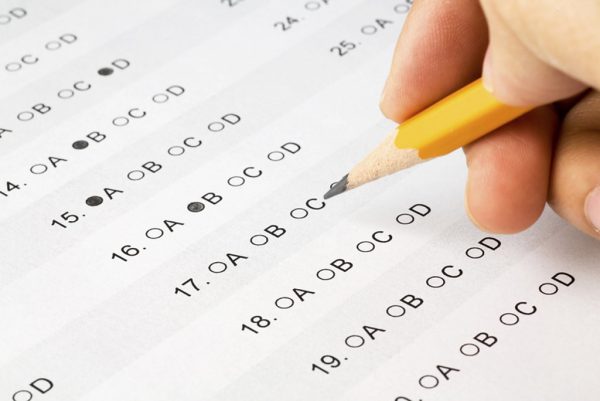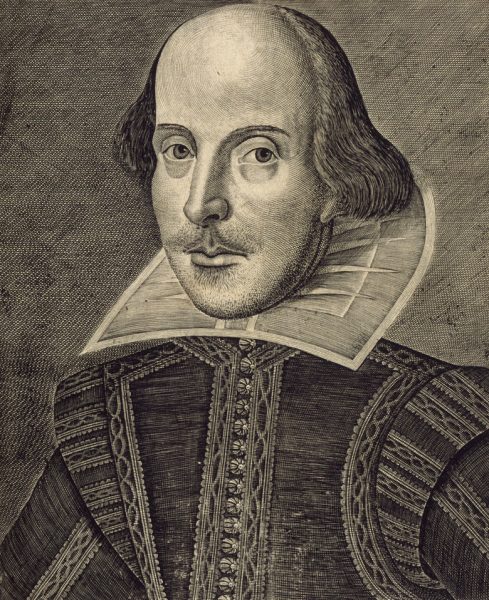Breaking News: New and Updated Courses Announced for the 2022-2023 School Year
For the 2022-23 school year, there are 20 new or updated options for upper school students to choose from. They are as follows:
History Department:
Gender Studies – Semester 1:
What is gender? Where does it come from? How has it changed over time? How has it been built into legal, economic, political, and social systems, and what are the tools for its reimagining? Using KC Councilor’s Between You and Me: Transitional Comics as our core text, this class will offer students a chance to examine, unpack, and play with gender. We’ll begin with the history of gender–and gender transgression–dating back to the Ancient World. We’ll move to examining turning points in the history of gender binarism, to dissecting the connection between gender and patriarchy, and to tracing the rise of multiple feminist and trans rights movements. Though the class does not assume any acting background, it does ask that students remain open to performative assignments, movement and breathing exercises, and to using their own lived experiences as a mode of knowing.
Intro to Ethics – Semester 2:
Have you ever heard of the classic trolley dilemma that asks whether you would sacrifice one person to save five? What would you do? How do you know that your decision is right? Ethics is a branch of philosophy that deals with distinctions between right and wrong and with the moral consequences of human actions. How do you define ethics? What informs your sense of right and wrong? How might you act in an ethical manner as a doctor, scientist, in business, or as a friend? In this course, we will review the various schools of thought that focus on ethics (e.g., virtue ethics, consequentialism, utilitarianism, etc.) and learn from the major thinkers associated with them (e.g., John Stuart Mill, Immanuel Kant, Ayn Rand, etc). We will apply ethical thinking to real-world scenarios and explore ethics in fields such as the media, healthcare, business, criminal justice, and science. Additionally, we will discuss case studies and moral dilemmas drawn from real-world current events and attempt to view them through the lens of ethical thinking while we explore our own understanding of what it means to lead an ethical life.
US History Through Music – Semester 2:
This course will examine U.S. History through the lens of music from 1950 to the present. How has music both shaped and reflected American values – especially around race, class, gender, and sexuality? How have artists like Billie Holiday, Bob Dylan, Jimi Hendrix, Aretha Franklin, Prince, Madonna, Lauryn Hill, Lin-Manuel Miranda, Beyoncé, Kendrick Lamar, Janelle Monáe, and Questlove made music that changed history? From the Vietnam War / Civil Rights Era to the Movement for Black Lives, why have some songs become protest anthems? How has technology revolutionized the ways that people both create and consume music? You’ll have many opportunities to choose songs and topics that you find compelling, then teach your peers. We’ll also see concerts, learn from experts, and partner with FSS music teachers throughout the semester. While no musical experience is necessary, you should bring an appreciation for music, an interest in writing (both personal and analytical), and a willingness to discuss weighty topics.
African American History WWII-Present – Semester 2:
This course is a survey of African American History from World War II up to the present. It will examine African Americans in the context of an increasingly globalizing America. It will explore black people’s contributions in the Second World War; Cold War and Civil Rights; Black Power to the so-called “post-racial” America. We will learn about the seven core fields of Black studies as outlined by Maulana Karenga: Black history, religion, social organization, politics, economics, creative production, and psychology. Focusing on these themes will allow students to develop deeper insights into how African Americans shaped their own history in America, while at the same time illustrating how the African-American experience is an essential part of the larger American experience.
Citizen Justice – Semester 2:
This course will serve as an introduction to the ways in which private citizens have been able to use a variety of activities and resources, volunteer and non-governmental avenues, assisting and/or challenging established law enforcement and courts, and effectively using the media in pursuit of justice – especially in those cases where it appears that justice has been delayed or denied. This injustice may involve solving cold cases (unsolved criminal investigations which remain open pending the discovery of new evidence) or challenging cases of wrongful convictions. We will focus extensively on the history and evolution of Philadelphia’s own Vidocq Society. Originally established as a club for elite members of law enforcement to entertain and divert themselves by solving famous historical murder cases over monthly lunch meetings, the Vidocq Society quickly evolved into the nation’s best avenue for grieving families and friends to seek justice for murder victims after the trail had gone cold. We will also examine a growing national trend of private citizens actively working to bring closure to America’s enormous body of unsolved crimes, as described in Deborah Halbers’ book, The Skeleton Crew: How Amateur Sleuths Are Solving America’s Coldest Cases. Students will examine a variety of sources, including numerous books, articles, podcasts, and other related social media. They may have a unique opportunity to meet with Vidocq Society founder(s) and to discuss the nature of their work. One of the questions this class will address is the nature of justice. Quakers have long been involved in restorative justice and reform of criminal justice systems. How might Quaker values be expressed in greater citizen pursuit of true justice using 21st means?
English Department:
Asian Voices – Semester 2:
This course explores a wide-range of contemporary literature by Asian and Asian-American authors to better understand racial and ethnic identity, immigration and assimilation, gender, class, sexuality, nationalism, home, community, family, history, and memory. Diverse voices from India, Japan, Indonesia, Vietnam, Korea, China, Southeast Asia, and the United States will be represented, and texts may include works by Ocean Vuong, Ruth Ozeki, Bao Phi, Te-Ping Chen, Rajesh Parameswaran, Jhumpa Lahiri, Haruki Marukami, Min Jin Lee, Chang-Rae Lee, Charles Yu, and others. Students will respond to texts through critical posts, essays, presentations, and personal writing.
Dystopian Literature – Semester 2:
Our world is on the brink of a potentially dystopian future. In this course, we will read dystopian novels to better understand what holds worlds together, what tears societies apart, and how people create new meaning in new realities. Texts may include works by Margaret Atwood, Jorge Luis Borges, Octavia Butler, Philip K. Dick, Alduous Huxley, Kazuo Ishiguro, Haruki Murakami, George Orwell, Emily St. John Mandel, and others. Students will be responding to the texts in a variety of modes, including analytic essays, presentations and personal writing.
Gothic Literature – Semester 2:
Are you drawn to flickering candles, the strike of midnight, catacombs, wild landscapes, brooding protagonists, and, of course, monsters? In Gothic Literature, we will read spooky, scary, and deadly serious stories from the 19th-century through today. This course focuses on the major themes found in Gothic literature and the techniques that diverse writers, from around the world, use to create thrilling psychological experiences for the reader. What is terror? What is horror? These basic questions are at the heart of Gothicism’s exploration of consciousness and reality. Gothic literature offers a deep wrestling with social injustices and hierarchies of power. We will also discuss theoretical and critical readings on the Uncanny, Abjection, Haunting, and the Sublime. Texts and authors may include Rebecca, Turn of the Screw, Toni Morrison, Mexican Gothic, the Brontë sisters, The Castle of Otranto, Frankenstein, and East Asian Gothic cinema.
Rhetoric (Public Speaking) – Semester 2:
Students will learn how to write and give effective speeches and presentations, through essential rhetorical devices such as ethos, logos, and pathos. We will start by viewing and analyzing various oral presentations, then learn various techniques to write and deliver effective speeches. Students will also practice how to overcome stage fright and capture an audience’s attention. Texts will include 50 Speeches That Made The Modern World, TED Talks: The Official TED Guide to Public Speaking, and others. (cross-listed with the Drama department)
Language Department:
Beginning French – Full year:
This course is intended for students who have no prior experience with the French language. This course develops students’ competence in communication and cultural awareness through an exploration of the role of French in societies around the world and through regular engagement in real-life language scenarios. Students learn about the history and influence that French has had throughout the world and explore issues facing French-speaking countries, communities, and peoples today. Emphasis is on students’ ability to understand and be understood in French through guided learning pathways focused on listening, speaking,
writing, and reading in a variety of travel, social, and cultural contexts. Students learn about regional and dialect differences among French speakers and practice strategies for navigating new and unfamiliar situations. Students who complete this course develop the confidence, oral and written proficiency, and cultural competence to continue to the next level of study in French – Beginning II.
Beginning ASL – Full year:
When you start any new language, you want to start conversing right away! Unlike other languages, when English-speaking students start learning American Sign Language, they are fingerspelling within the first few weeks, so there’s no delay in communicating in the new target language. Once students have the basics of letters and numbers mastered, they move on to the five sign parameters: handshape, palm orientation, location, movement, and facial expressions. Like all languages, students also learn parts of speech and sentence word order and types. Learning happens in cultural context as students explore the history and physiology of deafness as well as deaf culture, including discrimination experienced by the hard of hearing.
Math Department:
Mathematical Modeling – Full year:
Mathematical Modeling is the use of mathematical tools to gain an understanding of a situation or problem. This may include verbal descriptions, data tables, graphs, equations, physical models, or simulations. This course will use discrete dynamic systems to construct mathematical models in finance, biology, sports, and data analytics. The course introduces students to various topics that may include: mortgages, the spread of viruses, drug absorption rates, population growth, and analysis of sports data. There will be an emphasis on problem-solving, technology use (Google, Excel, and R-Studio), collaboration, and applications.
Prerequisite: completion of Algebra II or departmental permission.
Advanced Problem Solving – Full year:
For avid math students seeking a challenging, collaborative, problem-centered course that explores advanced topics across the mathematics curriculum. This course will include explorations in geometry, algebra, calculus, probability, combinatorics, set theory, graph theory, and number theory. In our preparation for various math contests like the American Mathematics Competition and The Math League, we will explore difficult, creative, and complex problem sets in a fun, low-stakes environment.
Prerequisite: completion of or concurrent with Calculus, or departmental approval.
Science Department:
Computer Science 1 – Semester 1:
The aim of this course is to introduce Computer Science and the Python programming language to beginners who are interested in problem solving, building a foundation in programming, and experimenting with new media. Students will learn to write programs in Python that can solve math problems, sort data, and generate interactive experiences. A firm grasp of Algebra will be of advantage to students taking Computer Science, but this course will value creativity and collaboration as much as logic.
Computer Science 2 – Semester 2:
Students will dive deeper into the Python programming language through learning about Object Oriented Programming and Graphic User Interfaces in this continuation of Computer Science I. Students will learn to create multipurpose objects with variable properties and methods, leading up to using their knowledge and teamwork skills to collaboratively design complex graphic games. In the fourth quarter, students will switch gears to building and programming their own robots with Arduino microcontrollers, developing their understanding of how information is collected, routed, and changed as it passes through software and hardware.
Prerequisites: Completion of Computer Science I or teacher recommendation.
Music Department:
Advanced Music Projects – Semester 2:
In this course, students with experience in music courses will undertake a series of independent projects in order to deepen their knowledge and practice of making music. We will work collaboratively as a team to ideate, design, troubleshoot, and share feedback on each other’s work. Students will identify their musical goals and undertake a series of ambitious projects to develop skills and to pursue their artistic vision. Example projects might include songwriting, recording arts, music theory/composition, mixed media, or experimental music. Students will gain insights into their creative process and future musical possibilities through diligent work and focus. Students in this course should have solid musical skills and be highly motivated and well-organized, and will leave this course with a stronger sense of their personal creative identity.
Prerequisite – Choir, Ensemble, other Music Elective, or approval of the Music Department Chair.
Visual Art Department:
Digital Senior Projects – Semester 2:
Digital Senior Projects is the culminating course for students who have taken multiple years of digital art. In this class, students will continue to develop along their creative journey as they dive into projects of their own design. Students can choose to use video, animation, photography, digital illustration, graphic design, 3D modeling, etc. to create personal works that help them meet their own goals as artists and designers. In this self-directed course, students will be encouraged to push themselves outside of their comfort zone, find new ways to combine their various interests, and experiment with new media.
Prerequisite: Advanced Digital Art or permission of instructor
Drama Department:
Advanced Acting & Directing – Semester 1:
This course is designed for experienced students who wish to deepen their study of drama. They will build on the principles already established in Drama I while pursuing more challenging projects both individually and as an ensemble. Students will have the opportunity to direct peers in material of their own choosing. We will also examine the duality of show “business” and artistic intent by examining more modern works and the changing face of today’s theater industry.
Prerequisite: Drama I and/or interview with Donna Romero
Public Speaking – Semester 2:
Students will learn how to write and give effective speeches and presentations, through essential rhetorical devices such as ethos, logos, and pathos. We will start by viewing and analyzing various oral presentations, then learn various techniques to write and deliver effective speeches. Students will also practice how to overcome stage fright and capture an audience’s attention. Texts will include 50 Speeches That Made The Modern World, TED Talks: The Oficial TED Guide to Public Speaking, and others. (cross-listed with the English department)
Pragmatic Woodworking – Semester 1:
This course introduces students to the fundamentals of woodworking with an emphasis on tool usage, formal design processes, and safe shop practices. Students will be individually guided through introductory joinery, basic methods of construction, and personal projects in which they will learn how to effectively use a wide variety of hand and power tools. This project based course will provide students an opportunity to interpret, develop, and complete their own design ideas. Students will be able to look critically at the woodworking challenges in front of them, and hone the mental and tactile skills necessary to devise elegant solutions.
Prerequisite: Art Foundations
With so many promising new options, it is important for students to list backup choices in the chance that there isn’t room in their schedule for their desired course or it is filled. Erin says, “Natalie, as the scheduler, works on creating a schedule to accommodate as many students’ course requests as possible, but when there are electives and classes that only have one section offered, there will be conflicts. This is the reason it is so important for students to list an alternative (2nd choice) for electives.”

Lily is a senior at Friends Select School and has attended FSS since Pre-K. She is one of the Editors in Chief for the Falcon in addition to leading Gender...










